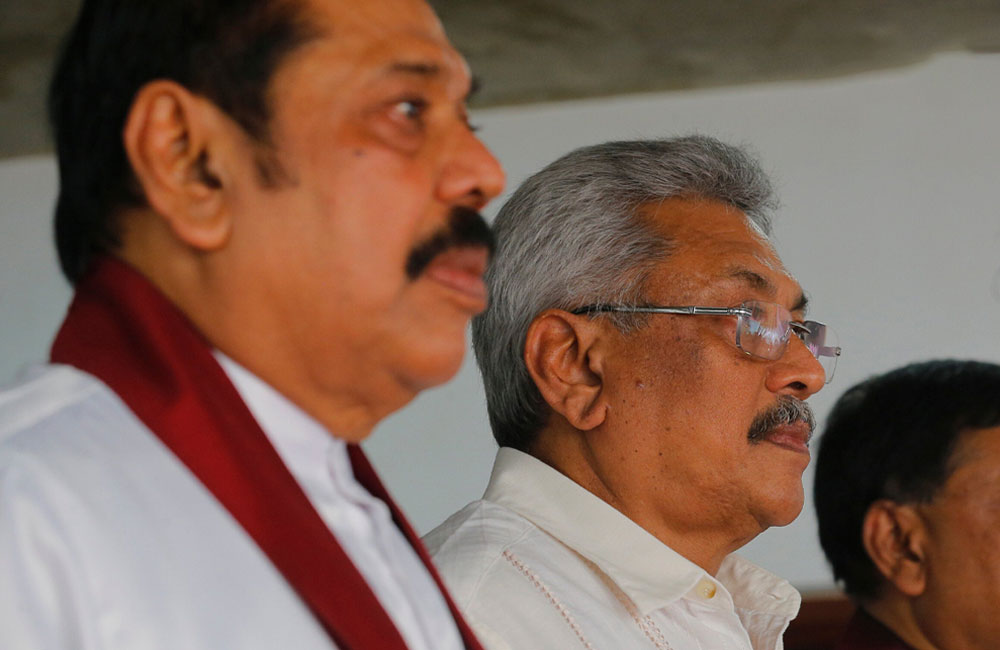The ambitious construction of the Akuregoda Defence Headquarters Complex, intended to serve as the centralized hub for Sri Lanka’s Armed Forces and Ministry of Defence, has become emblematic of complacency, mismanagement and unquantified losses running into hundreds of millions.
Origins and Political Context
The roots of the project trace back to decisions made while Gotabaya Rajapaksa served as Secretary to the Ministry of Defence and Urban Development and continued into his presidency, revealing a troubling blend of strategic overreach and governance failure.
Initially envisioned as a means to free prime land in Colombo and consolidate defence administration, the headquarters complex was launched in 2011.
Early Implementation and Emerging Irregularities
Under the Rajapaksa era, it gained momentum but also became entwined with controversy. A Cabinet-appointed investigation found that consultancy fees and firm selections were improperly handled, with large payments allegedly made without full oversight.
Local reports said a payment of Rs 600 million had been made in excess to a consultancy firm in 2016 during the project’s early phase.
Procurement and Contract Failures
Fast-forward to recent audit findings: For the granite-tiling contracts alone—awarded despite guideline breaches three procurement tasks worth Rs 927.66 million were all given to a single contractor, sidestepping required pre-qualification of bidders.
Four extensions increased the contract period threefold and still the work remained unfinished as of 31 December 2023. On top of this, two suppliers submitted 19 claims for extension-of-time (EOT) amounting to Rs 837.5 million and US $3.68 million, placing a significant contingent liability on the state.
These anomalies matter not just as isolated procurement failures but because they point to deeper structural issues: lack of meaningful oversight, scope creep, and poor alignment with strategic needs. The state’s decision to concentrate all branches of the military into a closely-packed complex despite expert warnings of security vulnerability reflected inadequate planning at the outset.
Fiscal Implications and Structural Weaknesses
The economic and financial implications are stark. Unfinished contracts lock up capital while leaving the necessity of ongoing operational costs or alternative arrangements. Contracts ballooning in cost directly drain public resources with little visible return yet.
The investment in the project has diverted funds that could have been deployed elsewhere in an economy already under stress and seeking foreign investment. Moreover, the reputational damage fuels investor wariness: if high-profile defence infrastructure can flounder, what message does this send about governance standards and project execution to the private sector?
Policy Lessons and the Way Forward
Crucially, this project has become a micro-cosm of the Sri Lankan state’s fiscal fragility: fixed assets built on Promised Land sales (such as in the early 2010s) and off-balance-sheet liabilities now shifting into public domain. The construction of the new military HQ was linked to land sales of the old Army headquarters and the idea was to use those proceeds rather than traditional budget allocations.
But when oversight faltered, cost escalated and benefits lagged, the outcome has been fiscal stress rather than strategic advantage.
For Sri Lanka, the way forward must include a rigorous forensic audit of the defence HQ project, revision or cancellation of persistently lagging contracts, and a recalibration of the way large state-infrastructure projects especially in strategic sectors are conceived, procured and implemented. Without such corrective action, the heavy price paid in opportunity cost, public funds and investor confidence may yet deepen the country’s economic vulnerability.

Leave your comments
Login to post a comment
Post comment as a guest